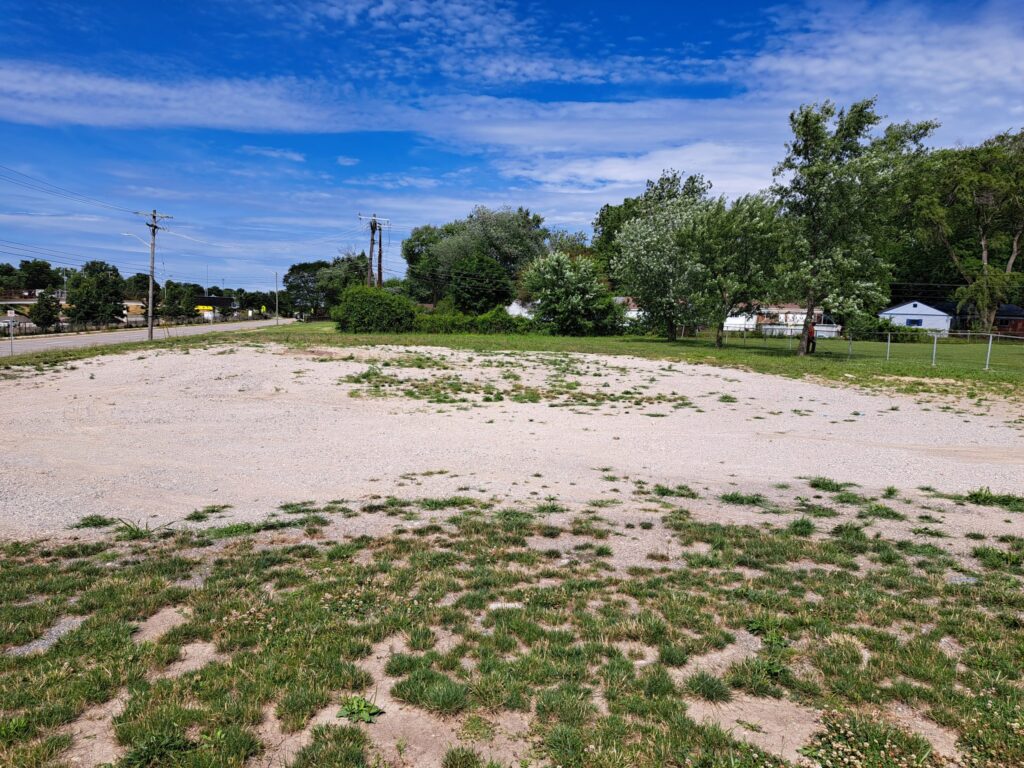
Students at two schools in South Redford face a higher risk of developing health issues due to the schools’ proximity to the I-96 freeway. A combination of the highly trafficked freeway and lack of tree and shrub coverage results in high levels of air pollution reaching the students. The solution to this issue is to plant more trees and shrubs between the schools and the freeway.
Through a grant funded by National Fish & Wildlife Foundation, Friends of the Rouge has planted a total of 179 trees and 220 shrubs at Jane Addams Elementary and Thurston High School. The goals of this project are to create a buffer between the schools and I-96 to reduce the amount of air pollution reaching the students, and to involve the schools in the planning and planting process.
Through collaborative discussions and coordination, Friends of the Rouge staff worked with the schools’ superintendent, principals, teachers, and operations director to devise a plan for these trees and shrubs. To best meet the goals of reducing air pollution while also meeting the needs of the schools, each site had a unique plan and approach.
Jane Addams Elementary had a vacant lot between the school’s playground and the freeway; a perfect location for many of the trees. The plan for this area is to create a forest consisting of canopy trees such as Swamp White Oak, Red Maple, Basswood, Sycamore, and Kentucky Coffee Tree. Additionally, understory trees and shrubs such as Eastern Redbud, Hop Hornbeam, Musclewood, and Spicebush were also planted. To invite the students into the forest, a pathway is laid out and plans of further establishing it are in the works.
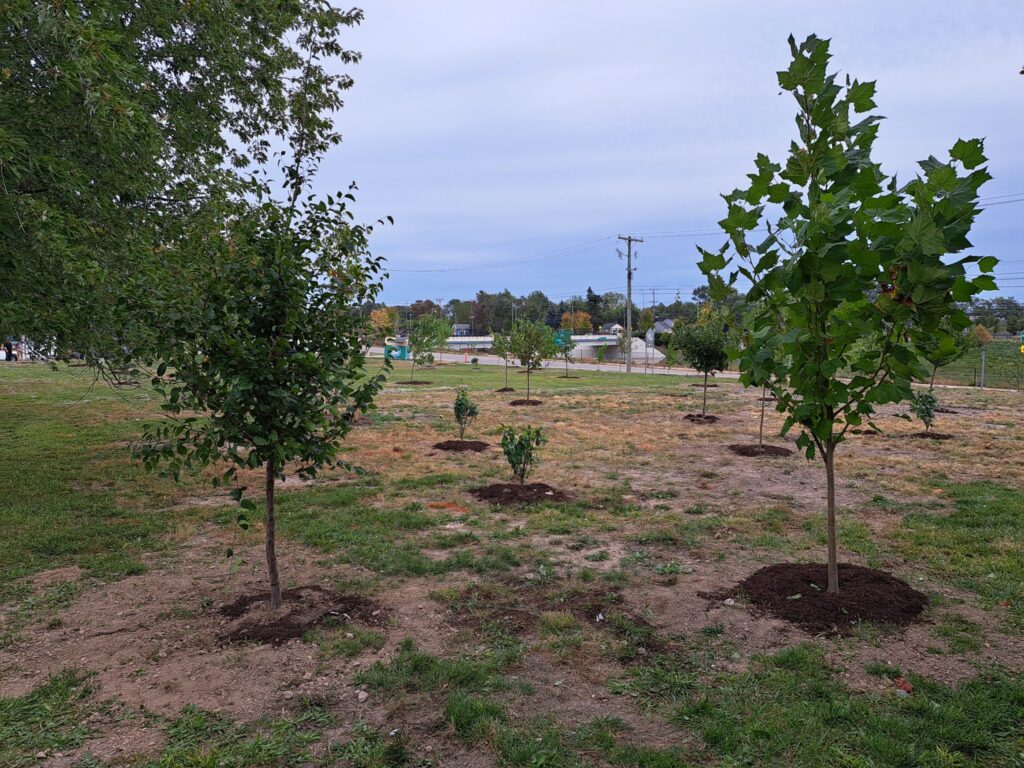
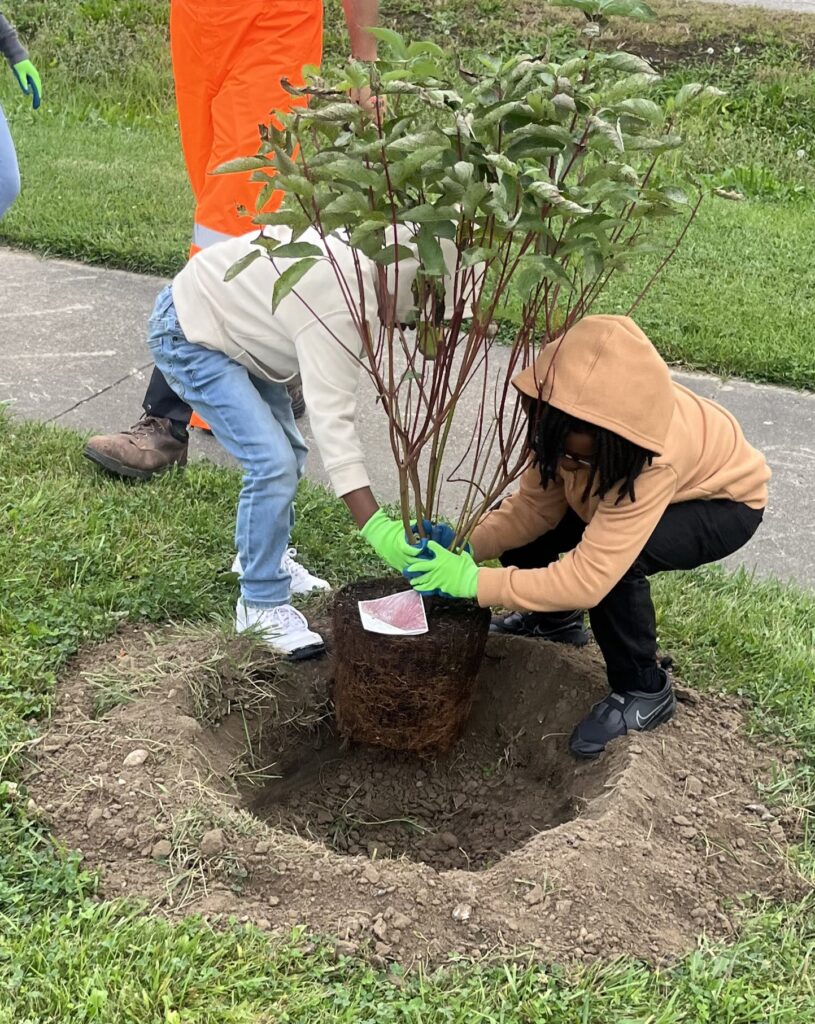
The playground right beside this pocket forest also received a handful of trees, along with a hedge of Red-Twig Dogwoods planted along the fence line. This planting at the playground will increase the amount of shade the students can access while also creating separation from the road and bus lane. The parking lot and bus lanes also received trees and shrubs to increase the canopy coverage and beautify the space.
While planting 60 trees and 88 shrubs at Jane Addams, Friends of the Rouge staff worked with 350 students, which included classes ranging from Pre-K through 5th grade. A science class of 8 graders from Pierce Middle School also attended the planting event and helped install the trees in the pocket forest. The remaining 35 large sized trees were planted through Crimboli, a local contractor.
Thurston High School had a different scenario and needs for their tree planting. Due to a lack of viable space in their southern parking lot, the trees at this site were less concentrated and spread throughout the grounds. The parking lot received a number of Kentucky Coffee Trees, and Tulip Trees, which increased the canopy coverage of the islands between the parking lot and the school. The parking lot also received rows of Fragrant Sumac along walkways towards the school and a hedge of Red Twig Dogwood between Schoolcraft Rd and the school parking lot. Clusters of Grey Owl Junipers were also planted throughout the parking lot. The bus lane received rows of Red Maples planted alongside it, which also acts as a buffer between the freeway and the schools.
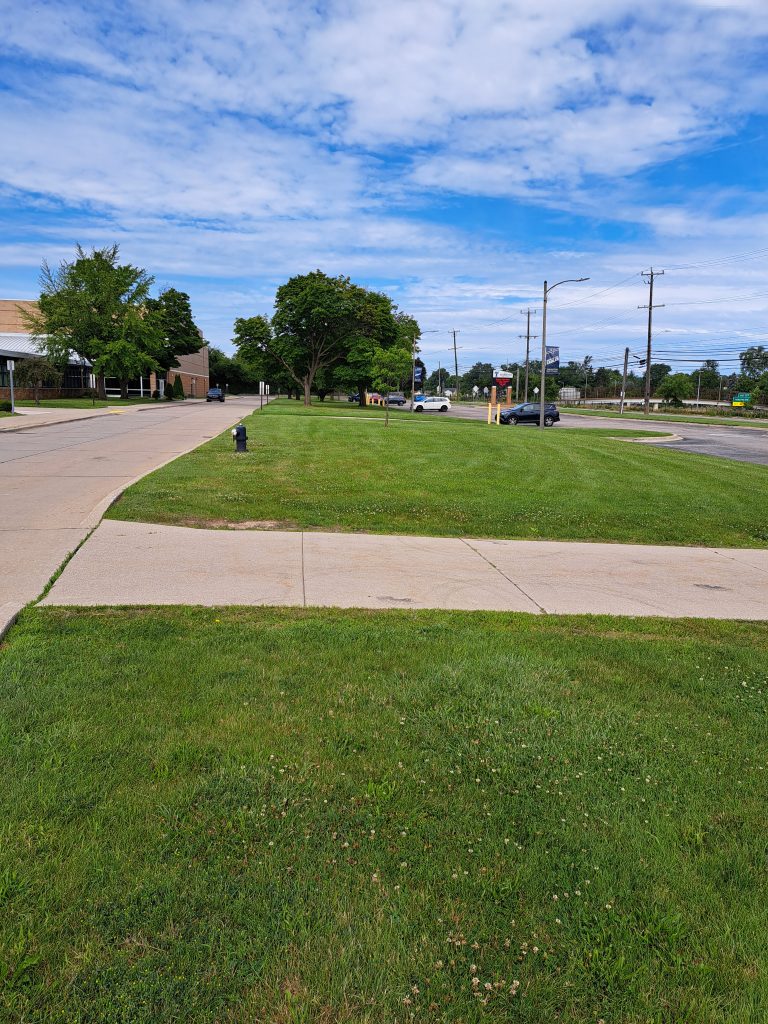
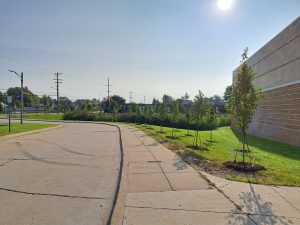
The remainder of the trees went on the east end of the school at the base of slope that receives water from a parking lot, the tennis courts, and a large concrete pad. These trees, in addition to creating canopy coverage and absorbing air pollution, also soak in stormwater from these impervious areas and provides habitat for birds and other wildlife.
While planting the 39 trees and 132 shrubs at Thurston High School, Friends of the Rouge staff worked with 225 students, primarily 9th grade biology classes and an environmental science class. Through this planting event, students were informed about the importance of planting these trees to protect against air pollution and their role in keeping the Rouge River Watershed healthy. The remaining 45 large sized trees for this site were also planted by Crimboli.
In a world where we are faced with expanding urban development and environmental degradation, the legacy and impact of this project will serve as a model of what can be achieved when many people work together to improve their local environment. According to Arbor Day Foundation and Center for Urban Forest Research it is estimated that when these 189 trees reach maturity, they will be able to absorb 9,072 pounds of carbon dioxide and 756,000 gallons of stormwater annually. While the planting areas between these two schools is about 2.5 acres, it goes to show the large impact of planting trees in areas that are strictly turf grass and underutilized space.
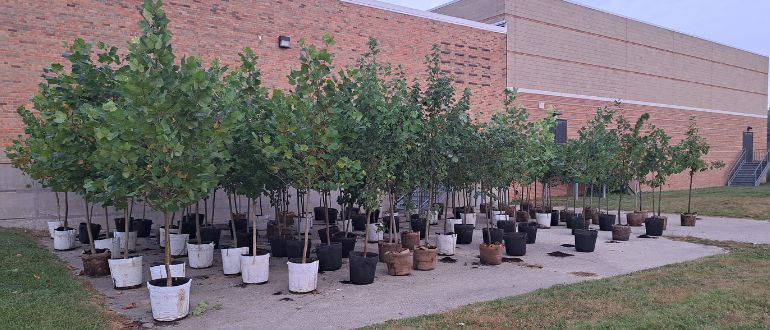
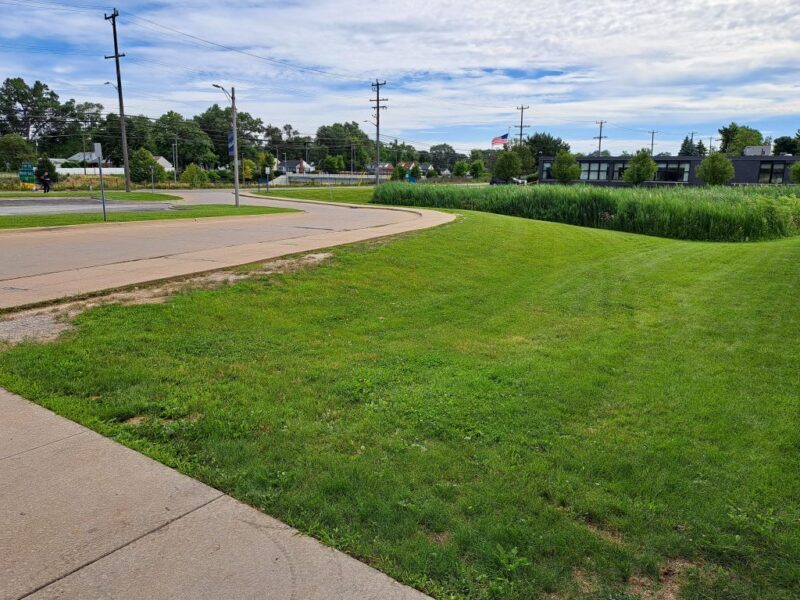
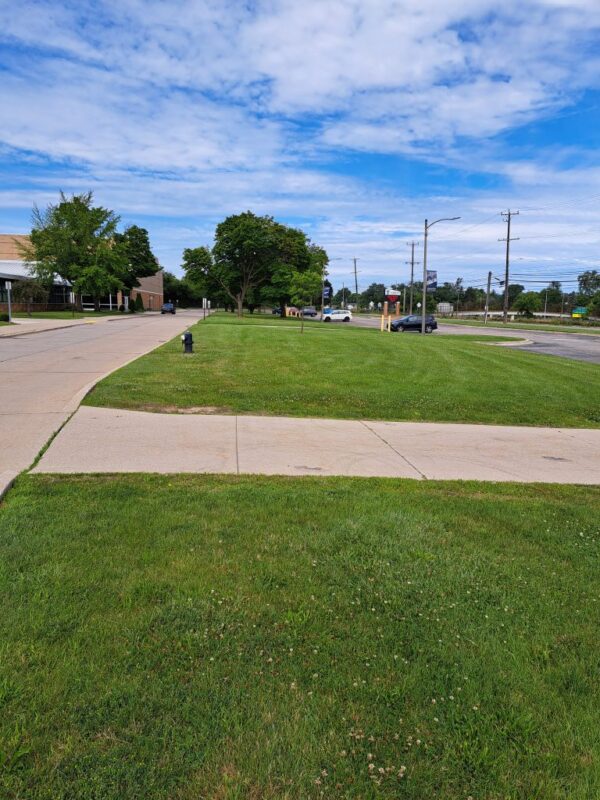
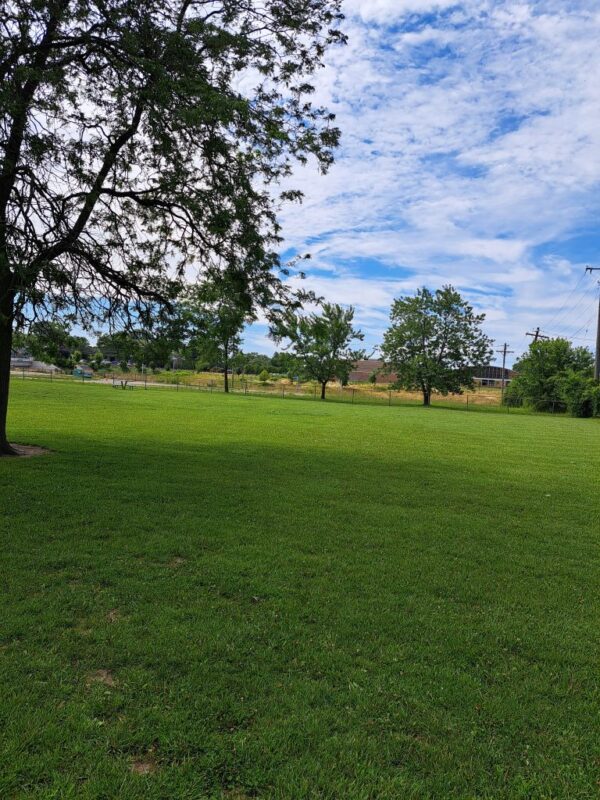

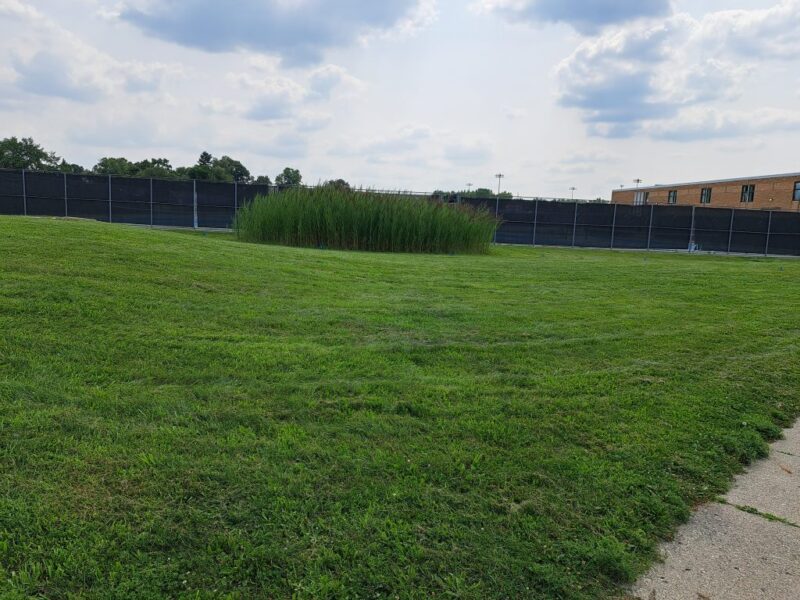
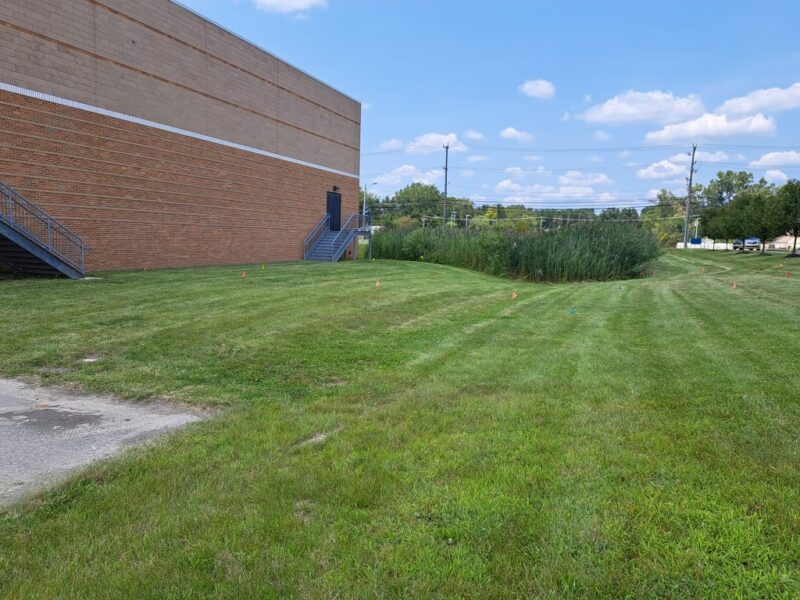

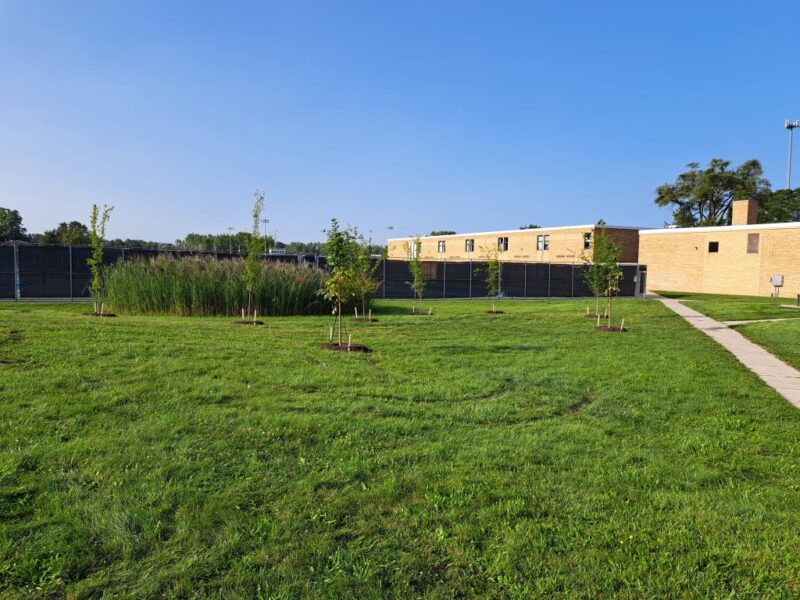
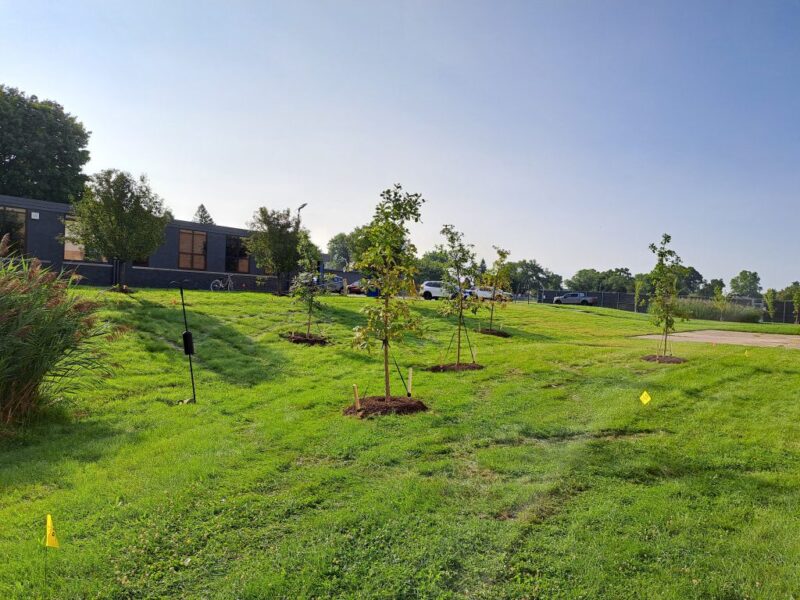
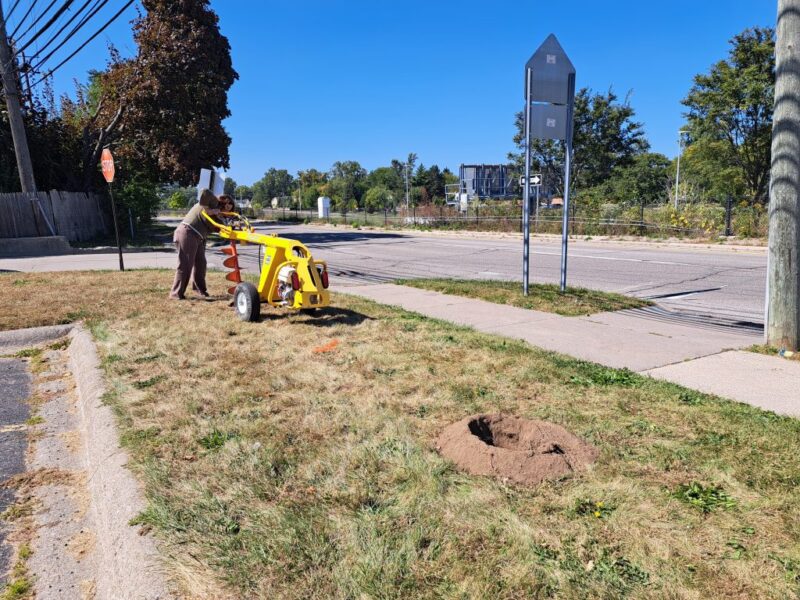
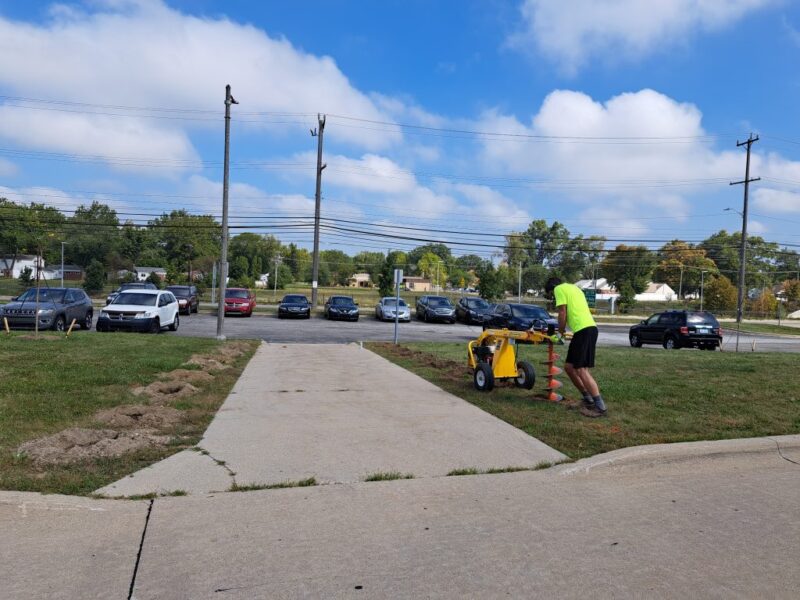
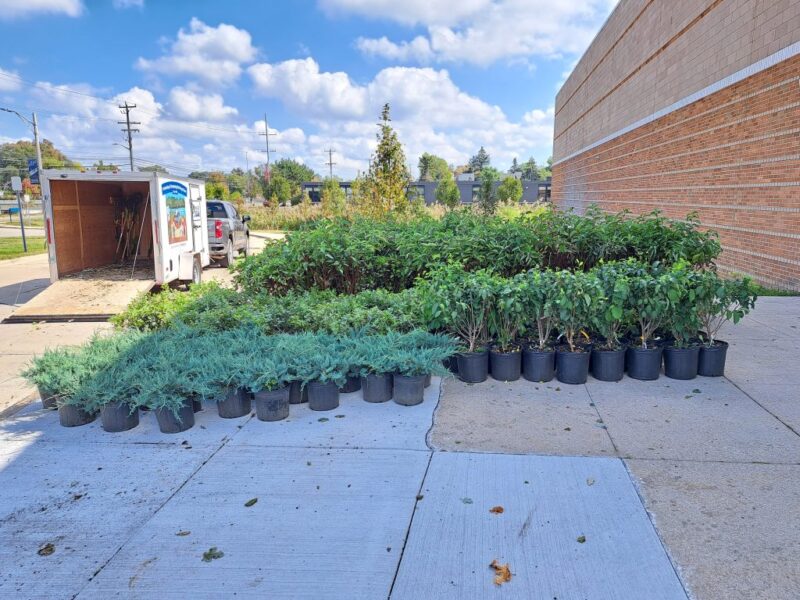
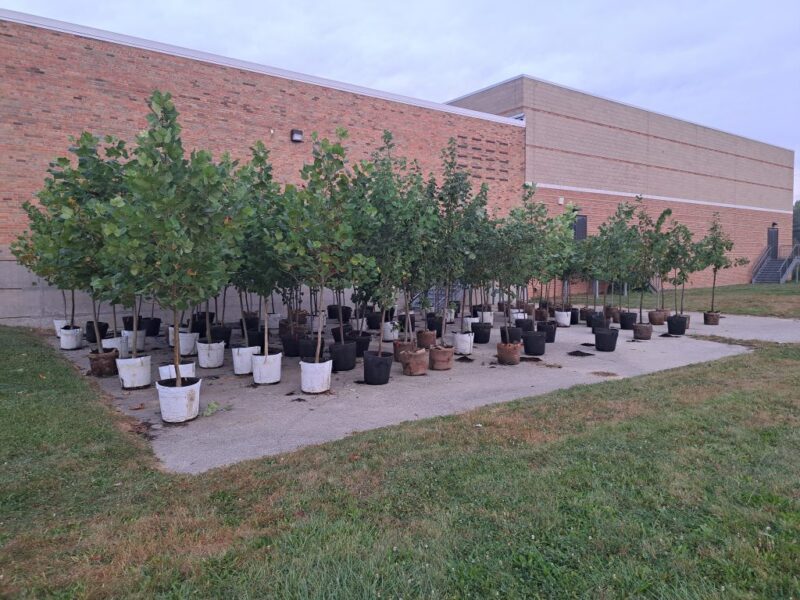
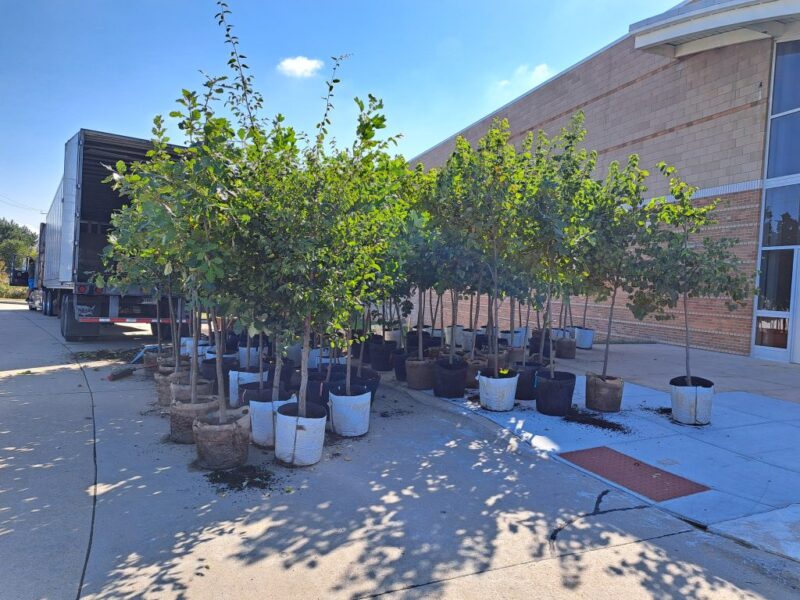
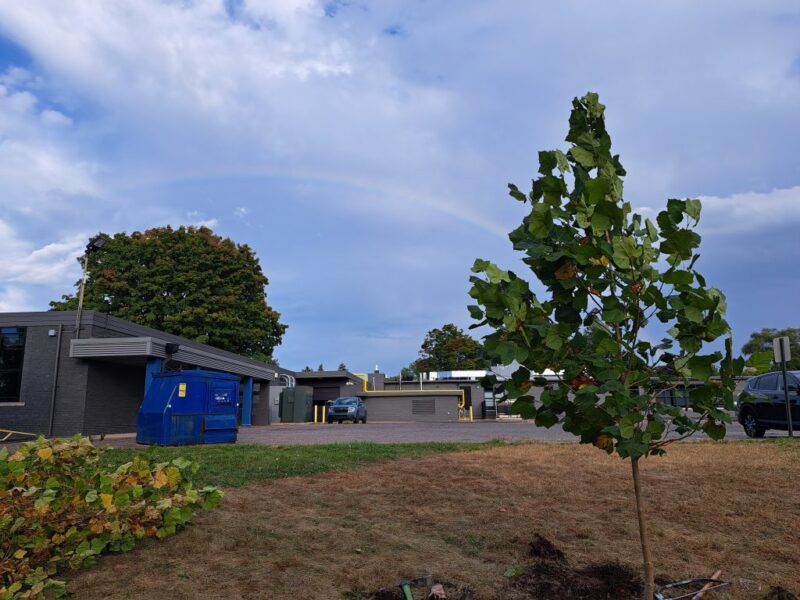
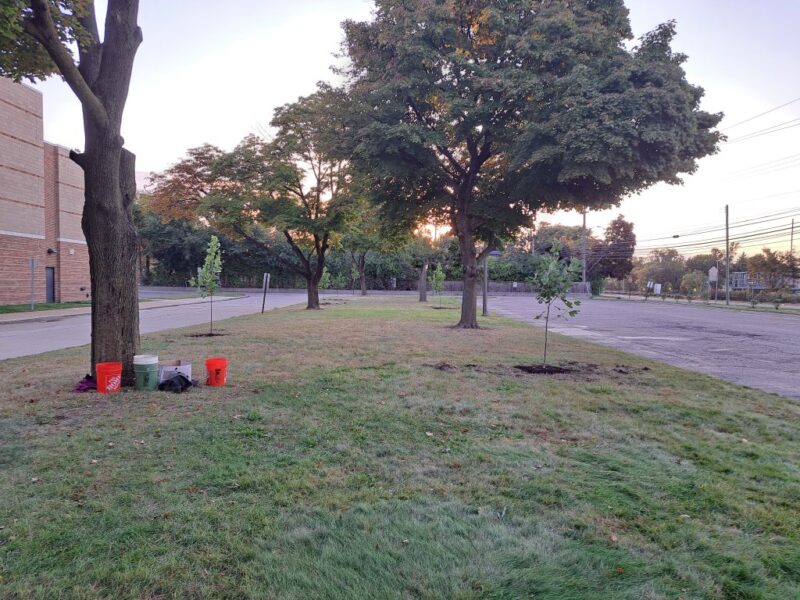
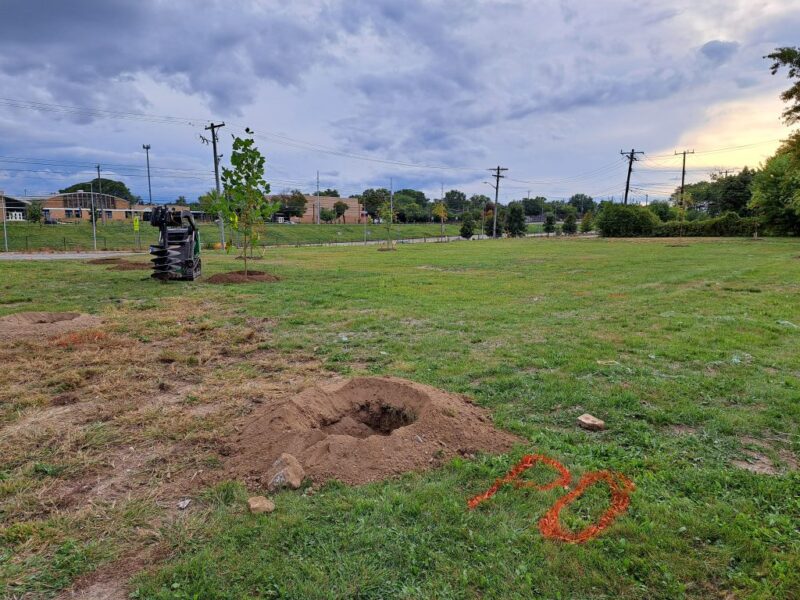
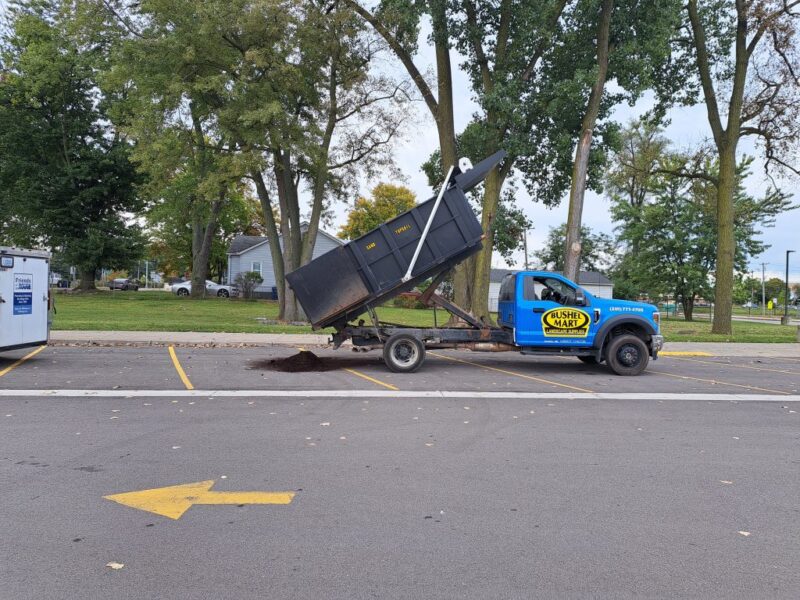
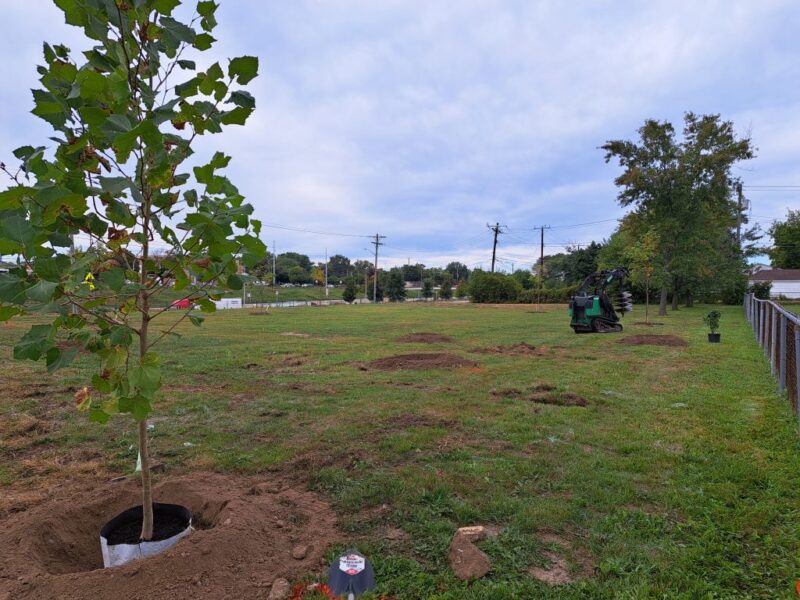
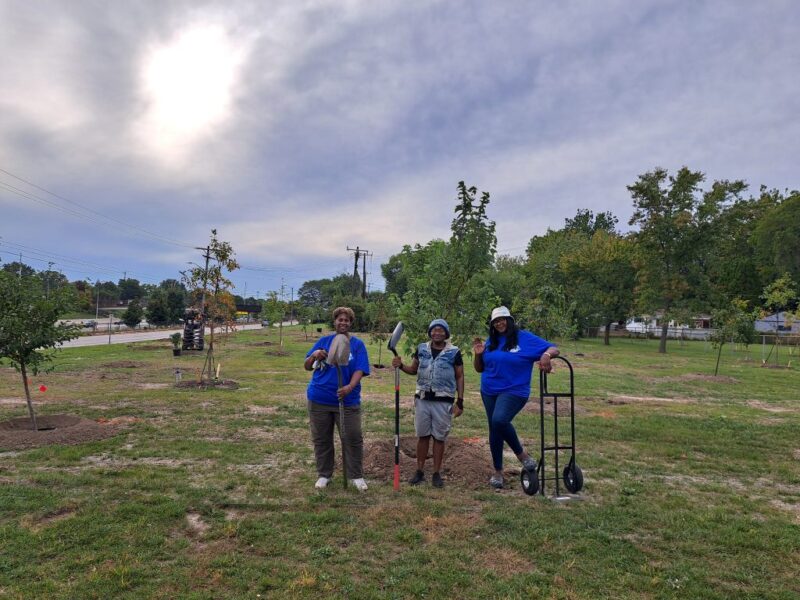
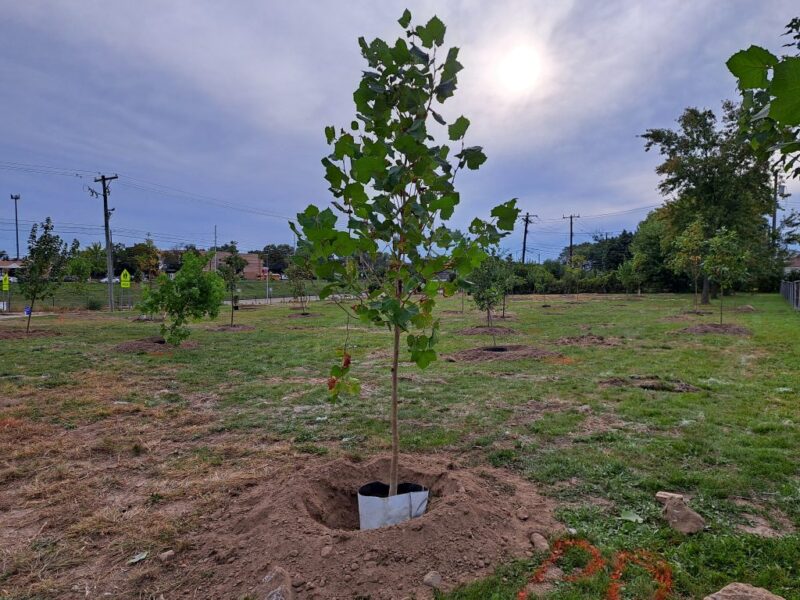
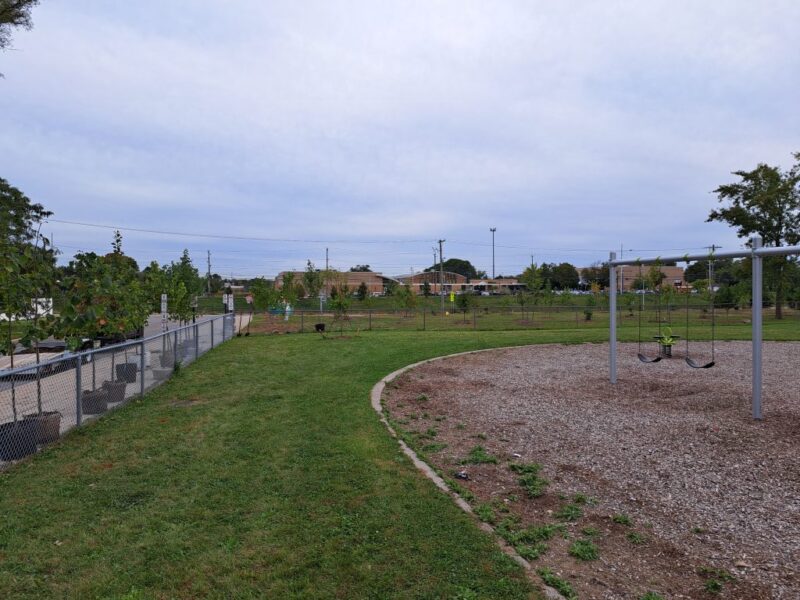
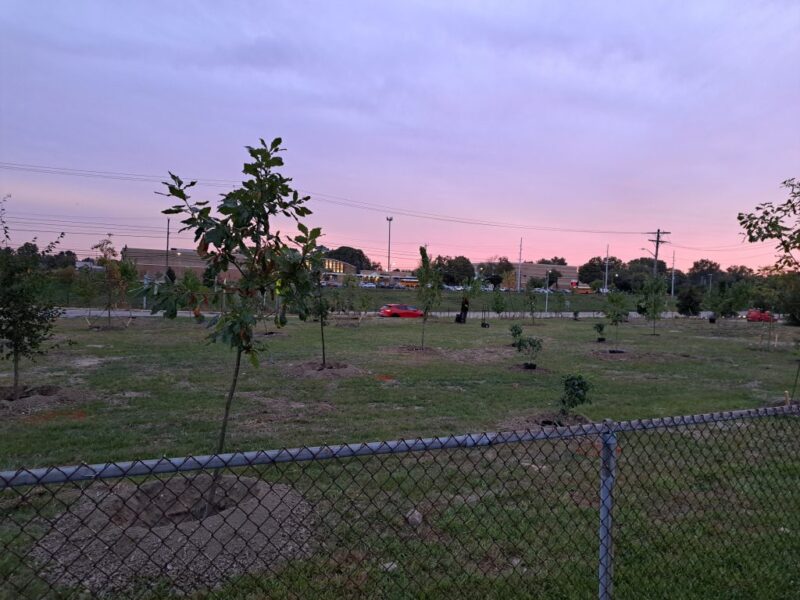
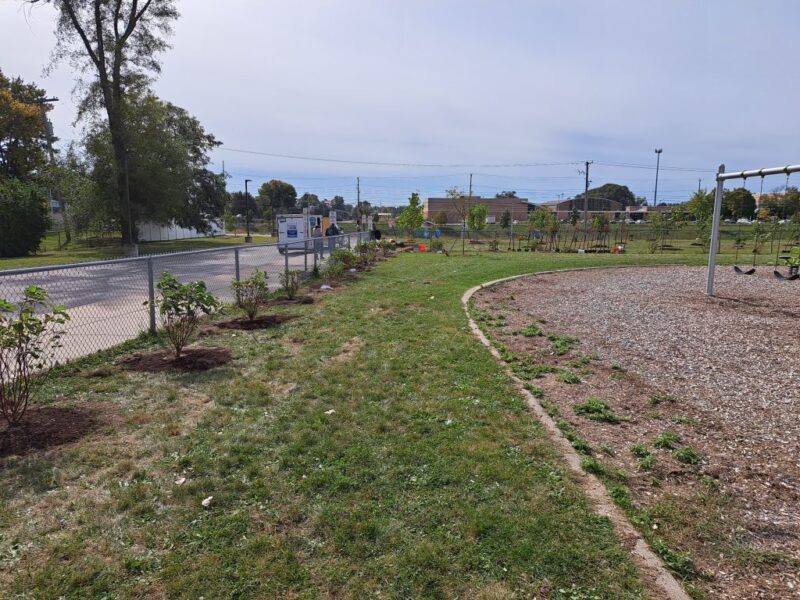

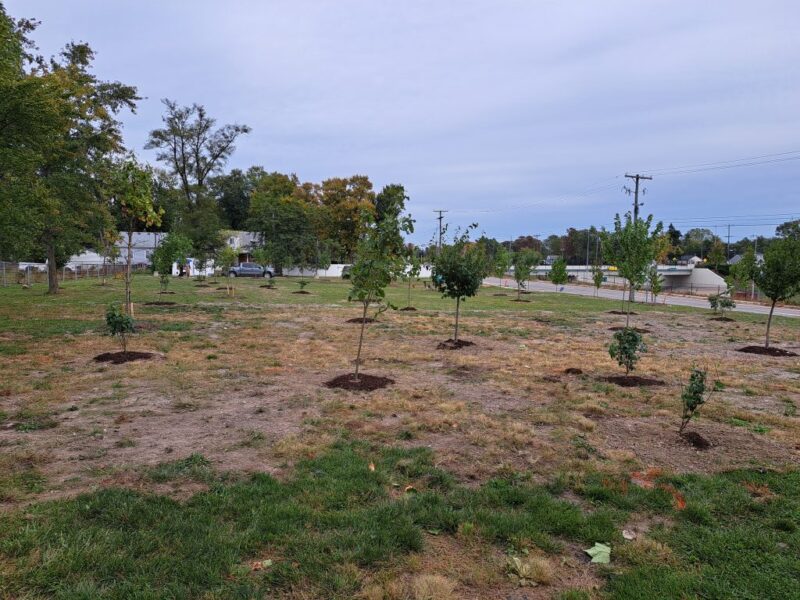
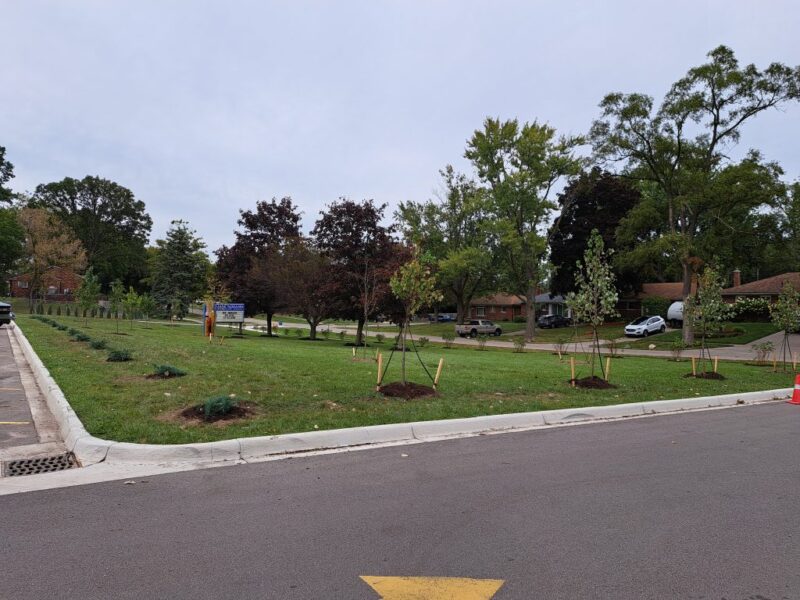
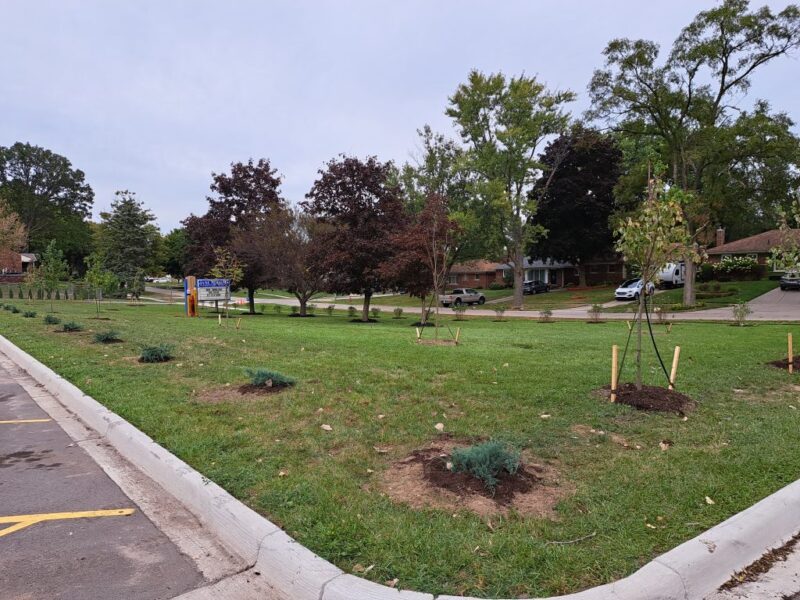
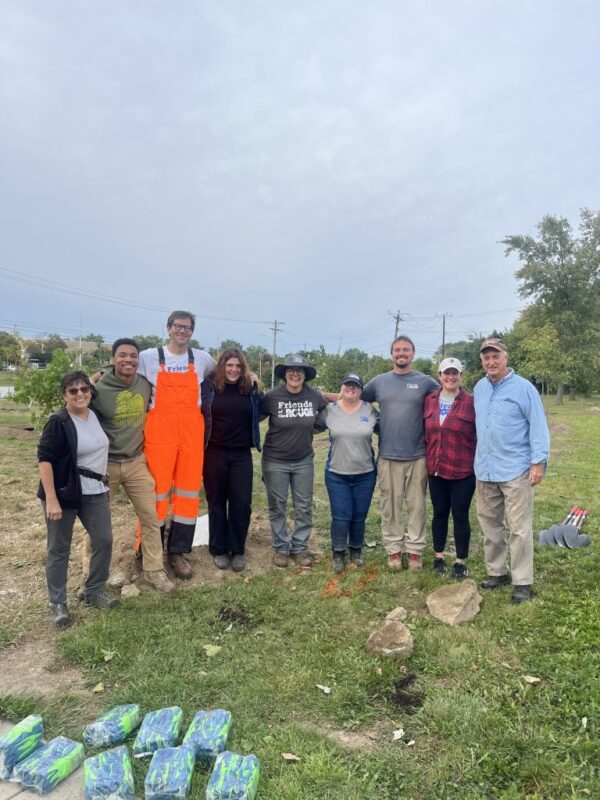
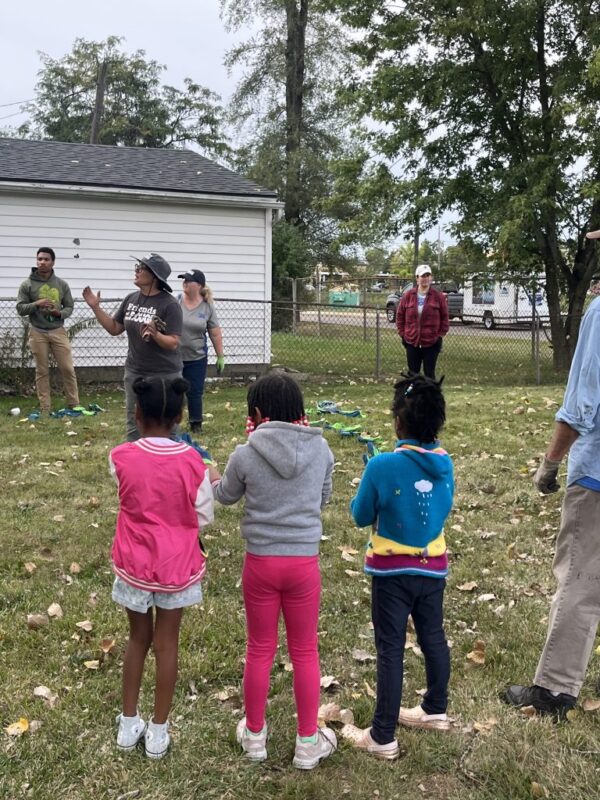
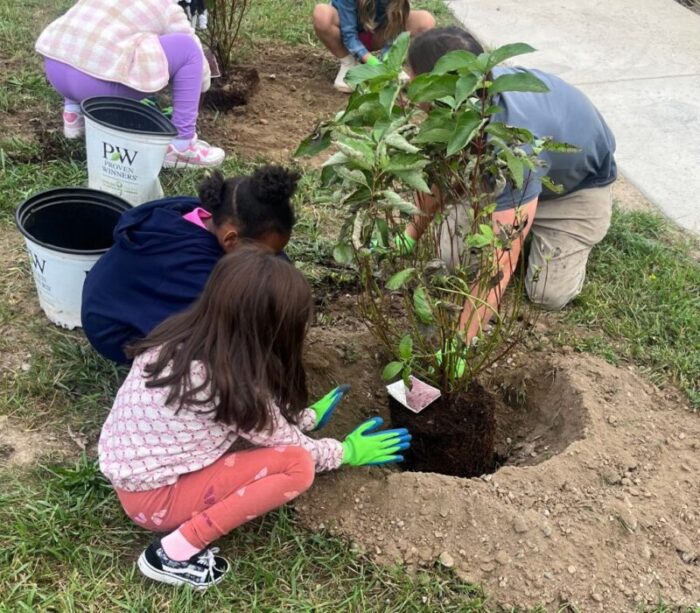
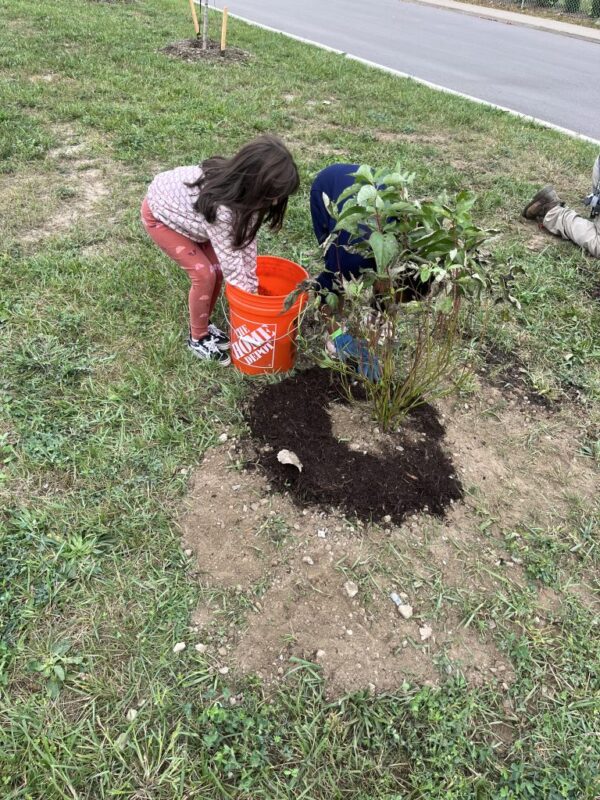

Categories
-
 BlogRead the latest blog posts from your FOTR team.
BlogRead the latest blog posts from your FOTR team. -
News & EventsLearn more about upcoming FOTR events and projects